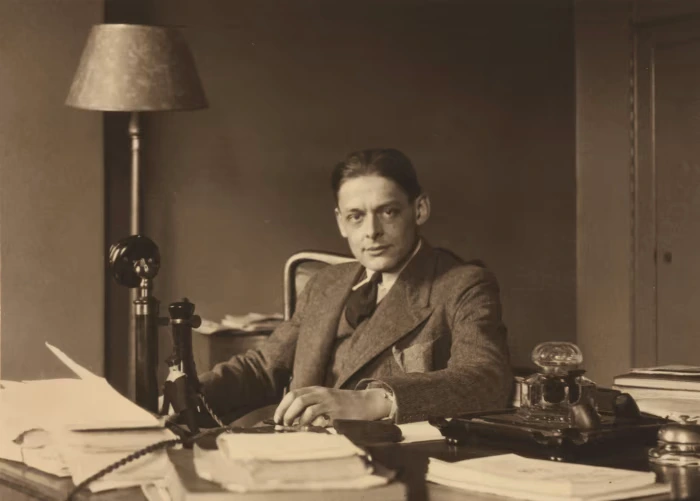
Get in Touch
We will get back to you within 24 hours.
Welcome to MVS Blog

"I have measured out my life with coffee spoons; I know the voices dying with a dying fall Beneath the music from a farther room. So how should I presume?"
Answer - Introduction
T.S. Eliot wrote “The Love Song of J. Alfred Prufrock” in February 1910. But, it was first published in June 1915 in Poetry. It portrays the thoughts of Prufrock, a man struggling with feelings of isolation and indecision. The poem uses a stream of consciousness style and references various literary works, reflecting the shift from 19th-century Romanticism to Modernism. Prufrock expresses his regrets, longing for love, and awareness of aging, making it a significant work in modern literature.
DID YOU KNOW ?
T.S. Eliot initially named the poem “Prufrock among the Women”, however, he later decided to call it a “love song”. This poem deals with the themes of world war 1 and fragmentary nature of society post the war this poem written in free verse, despicts the hopelessness and trauma that has been caused by the war.
About the author

T.S. Eliot was a renowned poet, playwright, essayist, and literary critic born on September 26, 1888, in St. Louis, Missouri. He developed a love for literature early in life, finding comfort in books due to health issues that limited his physical activities. Influenced by Edward Fitzgerald’s translation of the Rubaiyat, he began writing poetry at age fourteen. Eliot studied at Harvard and Oxford before moving to London during World War I. He gained fame with poems like "The Love Song of J. Alfred Prufrock" and "The Wasteland," and his influential works continue to shape modern literature.
Stanza --
"I have measured out my life with coffee spoons; I know the voices dying with a dying fall Beneath the music from a farther room. So how should I
This stanza is from T.S. Eliot's poem "The Love Song of J. Alfred Prufrock," the speaker reflects on how he has counted the moments of his life, likening them to the small, mundane actions of measuring coffee with spoons. This suggests that he feels his life is filled with routine and small details rather than grand experiences.
The second line, "I know the voices dying with a dying fall," indicates that he is aware of conversations and sounds around him, but they seem to fade away, perhaps signifying his feelings of isolation or detachment. The phrase "Beneath the music from a farther room" suggests there is something beautiful or uplifting happening nearby, but he feels distant from it, emphasizing his sense of separation from the joys of life.
Finally, "So how should I presume" expresses his uncertainty and hesitation about making decisions or taking action, highlighting his anxiety and self-doubt about engaging with life or pursuing relationships. Overall, this stanza captures the speaker's introspection and feelings of inadequacy.
Overall summary
"The Love Song of J. Alfred Prufrock" by T.S. Eliot is a poem that explores the inner thoughts and anxieties of a man named J. Alfred Prufrock as he contemplates his life and the complexities of love and social interaction. Prufrock feels uncertain and self-conscious about approaching a woman he is interested in. He describes the city at dusk, using vivid imagery of fog, smoke, and streets that lead to an overwhelming question about life and love. Throughout the poem, he wrestles with his fears and doubts, questioning whether he should take risks or if he is too afraid to act.
Prufrock reflects on his past, feeling old and inadequate, comparing himself to a minor character in a play rather than a heroic figure. He worries about how others perceive him and feels trapped in his own indecision. Ultimately, he feels disconnected from the world and wonders if his life has any meaning.
The poem ends with a sense of resignation, as Prufrock admits that he has lost his chances, and he feels overwhelmed by the reality of life, leading to a melancholy (sadness) conclusion where human voices wake him from his dreams, and he feels drowned in the expectations and pressures of existence.
“The poem presents Prufrock’s psychological struggles, especially his insecurities about love, aging, and personal fulfillment. Prufrock is paralyzed by a fear of rejection and judgment, which prevents him from taking action in both his personal life and career. The poem is filled with recurring themes of time, indecision, and existential anxiety.”
Conclusion
"The Love Song of J. Alfred Prufrock" is a profound exploration of J. Alfred Prufrock's feelings of isolation, self-doubt, and indecision. The poem vividly portrays his struggles with love and life, reflecting his sense of inadequacy and fear of rejection. Prufrock's reflections on his past and his worries about how others see him highlight the universal human experience of longing and uncertainty. Ultimately, the poem captures the bittersweet realization of missed opportunities and the weight of societal expectations.
0 Response